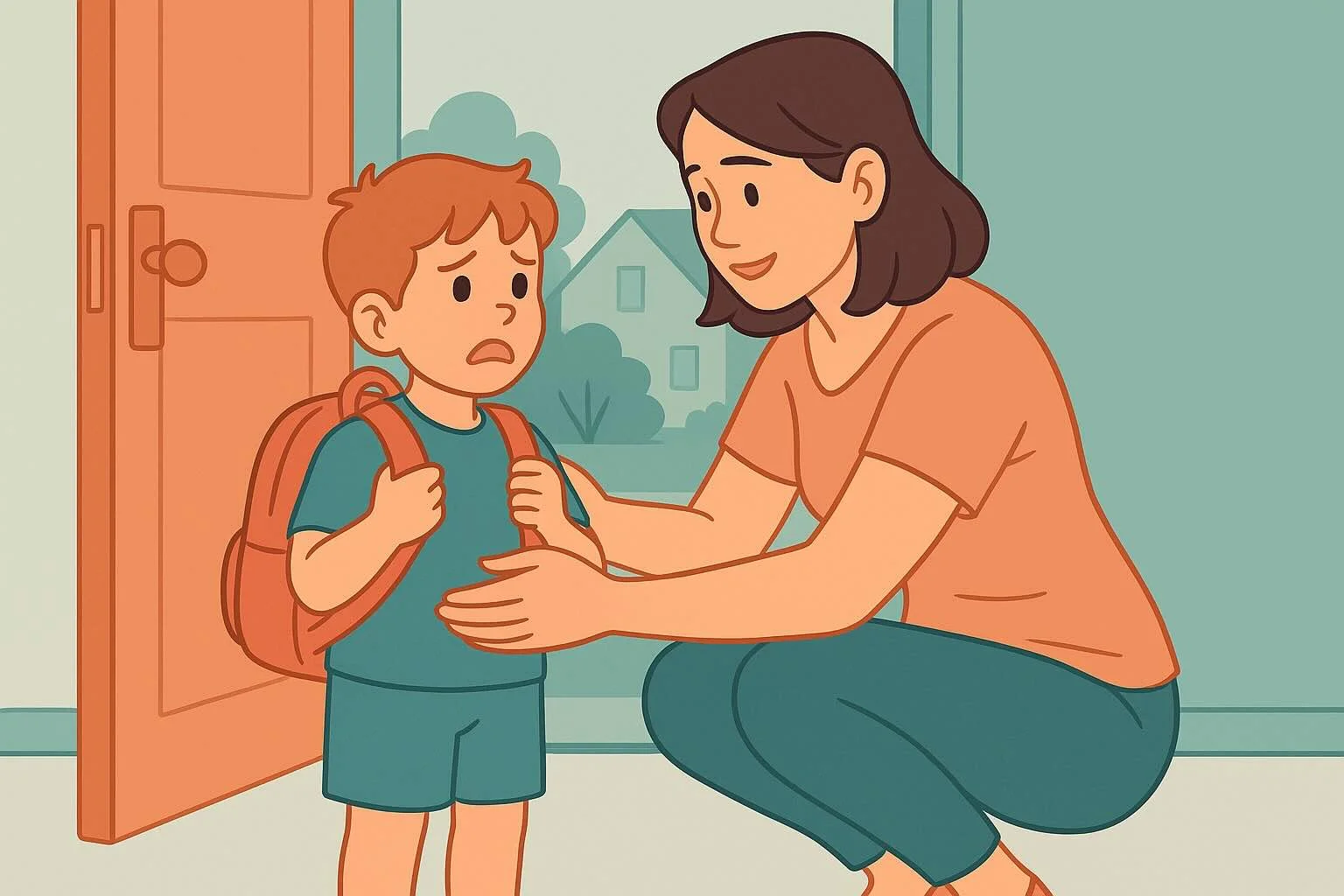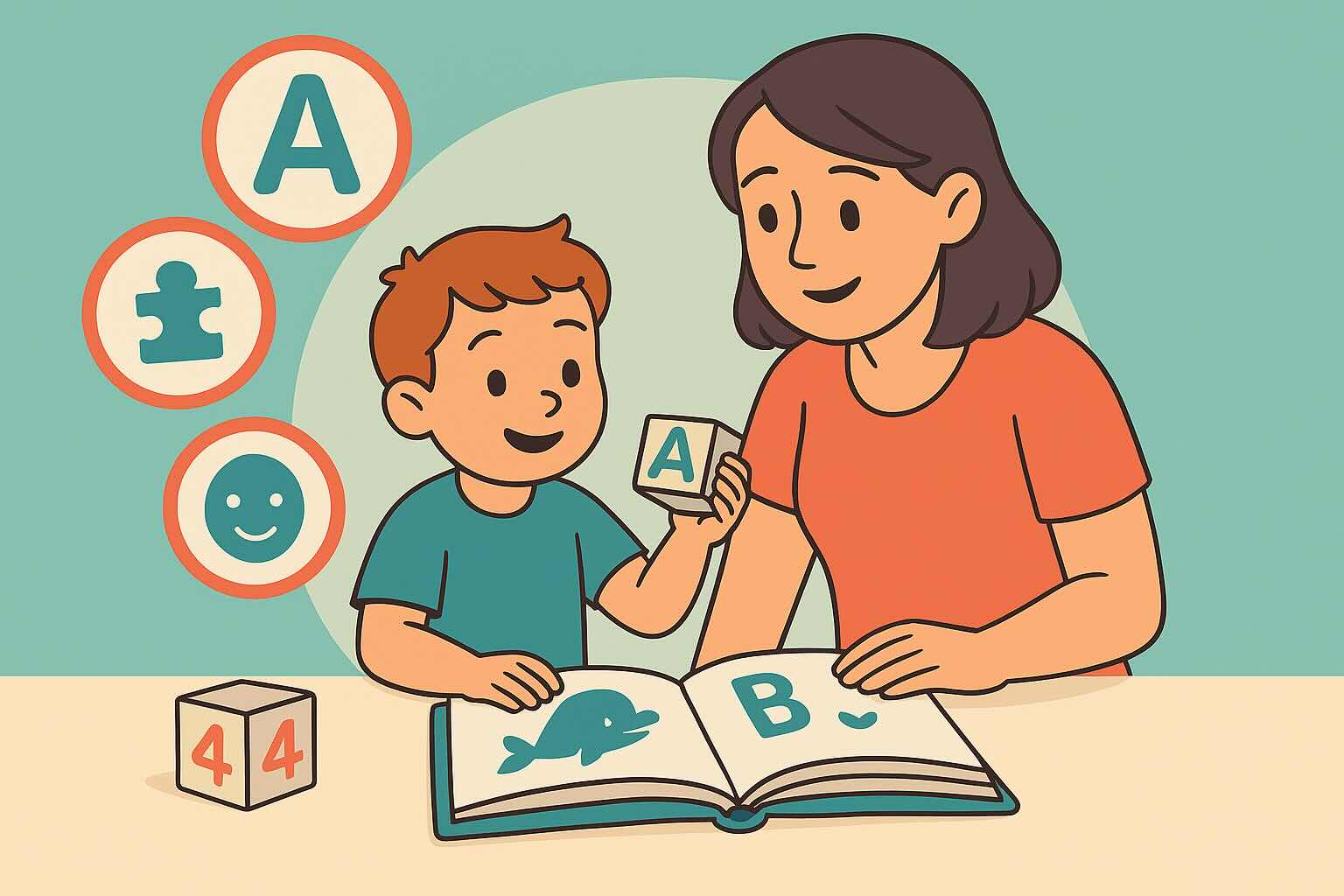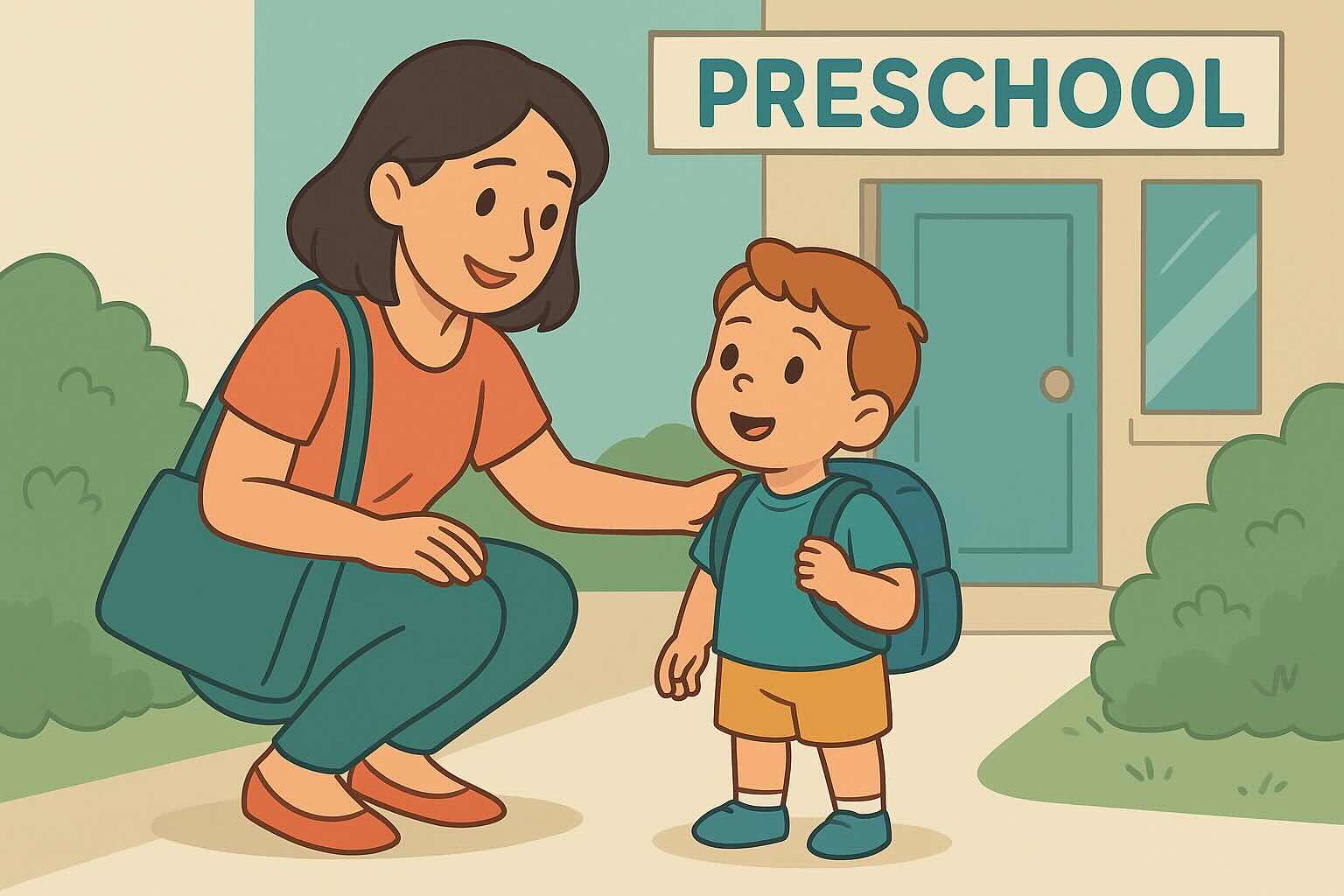Starting Preschool at 3: 10 Steps That Guarantee First School Success

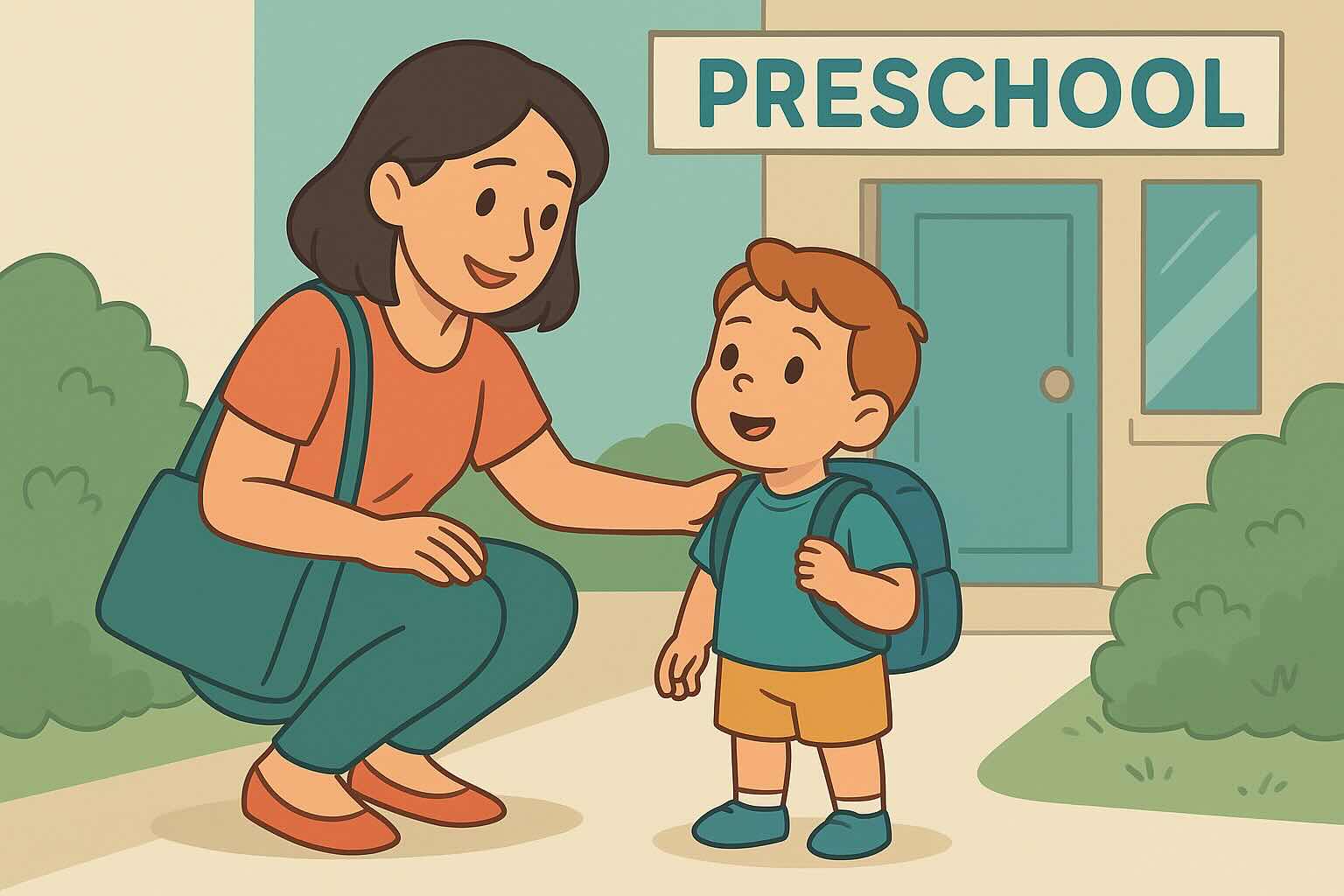
Starting preschool at 3 represents your child's first major step into the wider world—and it can feel overwhelming for both of you. Research shows that 75% of 3-year-olds experience some initial anxiety about preschool, but with thoughtful preparation, most children not only adjust but thrive in their new environment within 4-6 weeks.
This comprehensive guide provides evidence-based strategies specifically tailored for 3-year-old development. You'll discover practical tools to transform this significant transition from a source of worry into an exciting milestone that builds your child's confidence and independence.
For related transitions, explore our guides on starting school, routine changes, new sibling preparation, and moving with children for comprehensive transition support.
What You'll Learn in This Guide
- 3-Year-Old Development and Preschool Readiness - Understanding your child's unique developmental stage
- 8-Week Preparation Timeline - Step-by-step guide from first conversations to first day success
- Essential Readiness Skills - The 6 most important abilities for 3-year-old preschool success
- Separation Anxiety Solutions - Proven strategies for tearful goodbyes and smooth transitions
- Age-Specific Teaching Approaches - How 3-year-olds learn differently from older preschoolers
- Troubleshooting Common Challenges - Solutions for regression, resistance, and adjustment difficulties
- Building Long-Term Success - Creating positive associations with learning and school
Estimated reading time: 13 minutes
Understanding Your 3-Year-Old: Why Preschool Feels So Big
The Beautiful Contradiction of Being Three
Your 3-year-old exists in a fascinating developmental space. They're no longer toddlers who need constant physical supervision, yet they're still very much dependent on familiar adults for emotional regulation and security. This unique stage creates both opportunities and challenges when starting preschool.
What makes 3-year-olds special:
- Emerging independence mixed with strong need for emotional security
- Language explosion but still limited ability to express complex emotions
- Social curiosity combined with parallel play preferences
- Routine lovers who also crave exploration and novelty
- Big feelings in a small body with developing coping skills
Understanding these beautiful contradictions helps you prepare realistically for your child's preschool experience.
The 3-Year-Old Brain and New Environments
At 3, your child's brain is incredibly active and rapidly developing. The emotional center (limbic system) is fully operational and sensitive to new experiences, while the rational thinking center (prefrontal cortex) is still very immature. This means your 3-year-old experiences new situations with full emotional intensity but limited ability to reason through their feelings.
Normal responses to preschool include:
- Excitement mixed with anxiety about the unknown
- Clinginess and increased need for parent proximity
- Sleep disruption or changes in sleep patterns
- Appetite changes or regression in eating independence
- Temporary setbacks in potty training or other skills
- More frequent emotional outbursts at home (not necessarily at school)
Important: These responses indicate healthy attachment, not problematic behavior. Most resolve within 4-6 weeks as your child builds new neural pathways of security and familiarity.
Individual Temperament and Preschool Readiness
Naturally outgoing children may adapt quickly and show immediate excitement about new friends and activities.
Cautious or sensitive children may need longer adjustment periods but often form deep, meaningful connections once they feel secure.
High-energy children may love the stimulation and activity but need extra support with group expectations and transitions.
Observe your individual child rather than comparing to age-based expectations or other children's experiences.
The 8-Week Preschool Preparation Timeline for 3-Year-Olds
8 Weeks Before: Introduction and Information Gathering
Start gentle conversations about preschool:
- "In a couple of months, you'll get to go to a special place called preschool where kids play and learn together."
- "There will be teachers there who help children have fun and learn new things."
- "You'll meet other children who are learning and playing too."
Practical preparation steps:
- Research your chosen preschool's daily schedule and philosophy
- Look at the school website or social media together, pointing out playground equipment and classroom spaces
- Begin reading preschool-themed books during bedtime routine
- Connect with other families whose children attend the program
6 Weeks Before: Building Independence and Confidence
Focus on practical self-care skills:
- Practice eating lunch independently with minimal adult help
- Work on opening containers, unwrapping snacks, and using utensils effectively
- Encourage bathroom independence while maintaining realistic expectations
- Practice putting on and taking off shoes, jacket, and simple clothing items
Emotional preparation:
- Acknowledge that preschool is a big step and some worried feelings are normal
- Share positive memories of your own school experiences
- Practice short separations with trusted caregivers (1-2 hours maximum)
- Build confidence through mastery of age-appropriate tasks at home
4 Weeks Before: Social Skills and Routine Building
Practice group interaction skills:
- Arrange playdates with multiple children to practice sharing and taking turns
- Visit playgrounds where your child interacts with unfamiliar children
- Practice asking for help using words: "Can you help me please?"
- Work on waiting for adult attention when adults are talking to other people
Begin routine adjustments:
- Gradually shift wake-up time toward school schedule (15 minutes earlier each week)
- Practice morning self-care routines with less parent help
- Introduce quiet activities that require 10-15 minutes of focus
- Practice cleaning up toys and materials when finished with activities
2 Weeks Before: School Environment and Final Preparations
Familiarize with school environment:
- Visit the school playground during off-hours if possible
- Drive or walk the route you'll take to school daily
- Meet the teacher during scheduled home visits or orientations
- Tour the classroom and point out areas where your child will play and learn
Practical readiness:
- Practice the complete morning routine including travel time to school
- Shop for school supplies together, letting your child help choose appropriate items
- Read books specifically about your child's preschool or similar programs
- Create a simple visual schedule showing the school day sequence
Essential Preschool Readiness Skills for 3-Year-Olds
1. Communication and Help-Seeking
Your 3-year-old should be able to:
- Ask for help using words rather than crying or gesturing
- Communicate bathroom needs clearly and promptly
- Express basic preferences: "I don't like this" or "I want to play with blocks"
- Use teacher's name or "teacher" to get attention appropriately
Development strategies:
- Practice role-playing different scenarios where your child needs to ask for help
- Encourage clear speech and make eye contact when speaking to adults
- Model appropriate ways to interrupt when adults are busy
- Celebrate successful communication attempts even if imperfect
2. Basic Self-Care Independence
Critical abilities for 3-year-old success:
- Eating lunch with minimal adult assistance (opening containers may need help)
- Using bathroom with limited adult support (wiping may need assistance)
- Washing hands independently after bathroom use and before meals
- Putting on and removing shoes and jacket with minimal help
- Carrying personal belongings (small backpack, lunch box)
Building independence:
- Allow extra time for self-care tasks and resist the urge to help too quickly
- Use clothing and containers that are easy for small hands to manage
- Practice these skills daily at home until they become automatic
- Praise efforts and progress rather than perfectionism
3. Emotional Regulation and Coping Skills
Age-appropriate emotional abilities:
- Accept comfort from unfamiliar adults when upset
- Express frustration with words or appropriate physical expressions (stomping feet vs. hitting)
- Calm down within 10-15 minutes with adult support
- Show resilience when things don't go as expected
- Ask for space when feeling overwhelmed
Emotional skill development:
- Practice calming strategies during everyday frustrations at home
- Read books about emotions and discuss different feeling words
- Model your own emotional regulation when you feel frustrated or disappointed
- Create predictable routines that help your child feel secure and able to handle change
4. Social Interaction Basics
Important social skills for 3-year-olds:
- Show interest in other children even if not ready for complex cooperative play
- Share materials and toys, even if reluctantly
- Take turns in simple games or activities
- Express empathy when others are hurt or sad
- Follow group instructions even when not directly addressed
Social development:
- Provide regular opportunities for interaction with children of similar ages
- Practice turn-taking activities and games at home
- Discuss feelings and appropriate responses when conflicts arise
- Model kindness, sharing, and empathy in your own interactions
5. Following Instructions and Group Participation
Essential group skills:
- Listen to instructions given to a group, not just individual directions
- Follow simple 2-step instructions: "Put your backpack away and sit on the carpet"
- Wait appropriately for turns in group activities
- Participate in circle time or group singing for 10-15 minutes
- Respond to teacher's signals for attention or transitions
Practice opportunities:
- Give multi-step instructions during daily routines at home
- Practice group activities with family members or during playdates
- Use timer activities to build attention span gradually
- Create simple rules and expectations for family activities
6. Curiosity and Learning Readiness
Learning attitudes that support success:
- Show interest in new activities and experiences
- Ask questions about the world around them
- Engage with books, stories, and simple learning activities
- Express preferences and make choices when offered options
- Show persistence when tasks become challenging
Fostering learning readiness:
- Follow your child's interests and expand on their natural curiosity
- Provide varied experiences through library visits, nature walks, and hands-on activities
- Read together daily and encourage questions about stories
- Celebrate effort and problem-solving rather than just correct answers
Handling Separation Anxiety: The 3-Year-Old Approach
Understanding 3-Year-Old Separation Anxiety
Separation anxiety in 3-year-olds is both normal and healthy—it indicates secure attachment to you as their primary caregiver. However, the intensity and duration can vary significantly based on your child's temperament, previous separation experiences, and how you handle the transition.
Why 3-year-olds experience separation anxiety:
- Strong attachment to primary caregivers provides their sense of security
- Limited experience with extended separations from parents
- Difficulty understanding time concepts ("When will you come back?")
- Active imagination that can create worries about what might happen during separation
- Natural developmental phase that typically peaks around age 2-3
The Gentle Goodbye Method for 3-Year-Olds
Step 1: Create a Special Goodbye Ritual Develop a brief, consistent routine that's the same every day:
- Special hug sequence: "Big hug, little hug, squeeze hug"
- Encouraging words: "Have fun playing and learning today!"
- Visual reminder: "I'll pick you up after outdoor play time"
- Transitional object: small photo, special stone, or comfort item (if school allows)
Step 2: Keep Departures Short and Predictable (2-3 Minutes Maximum)
- Avoid lengthy discussions about missing each other or when you'll return
- Don't sneak away—always say goodbye, but don't prolong the process
- Stay calm and confident even if your child is upset
- Trust that tears typically resolve within 5-15 minutes after departure
Step 3: Validate Feelings While Maintaining Confidence
- "It's hard to say goodbye AND you're going to have a wonderful day"
- "I can see you feel sad about me leaving AND your teachers will take good care of you"
- "Missing me shows how much you love me AND you can have fun while I'm at work"
Step 4: Empower Your Child with Choices
- Let them choose which comfort object to bring to school
- Offer choice about walking to the classroom or being carried
- Allow them to hang up their own backpack or choose where to put their lunch box
- Ask if they want to wave goodbye from the window or give one more hug
Step 5: Follow Through Consistently
- Arrive for pickup exactly when promised to build trust
- Don't return to the classroom unless there's a genuine emergency
- Ask specific questions about their day: "Did you play in the sandbox today?"
- Celebrate their independence and courage
When Separation Continues to Be Difficult
After 4-5 weeks of continued distress:
- Consult with teachers about your child's behavior after you leave
- Consider whether the program length or structure is appropriate for your individual child
- Evaluate if specific triggers make separation harder (crowded classroom, rushed mornings, changes in routine)
- Examine your own feelings about separation—children often mirror parental anxiety
Gradual approach alternatives:
- Start with shorter days (2-3 hours) and gradually increase
- Consider staying for 10-15 minutes during the first few days, then quickly tapering off
- Arrange for your child to attend with a familiar friend initially
- Visit the classroom multiple times before official start date
Age-Specific Teaching Approaches for 3-Year-Olds
How 3-Year-Olds Learn Best
Understanding your child's learning style helps you support their preschool success and communicate effectively with teachers about their needs.
Play-based learning dominates:
- Abstract concepts are learned through hands-on exploration and manipulation
- Social skills develop through parallel play and simple cooperative activities
- Language skills explode through songs, stories, and constant conversation
- Emotional skills are practiced through pretend play and real-life interactions
Short attention spans require variety:
- Focus periods of 10-15 minutes for structured activities
- Frequent transitions between different types of activities
- Physical movement integrated into learning experiences
- Multiple opportunities to practice the same skill in different contexts
Concrete thinking patterns:
- Visual schedules and routine charts provide security and understanding
- Simple cause-and-effect relationships can be understood
- Complex reasoning or abstract thinking is still developing
- Learning happens through repetition and consistent routines
Supporting Your 3-Year-Old's Learning Style at Home
Create learning-rich environments:
- Provide open-ended materials: blocks, art supplies, dress-up clothes, books
- Rotate toys and activities to maintain interest and novelty
- Include your child in daily household tasks as learning opportunities
- Follow their interests and build on natural curiosity
Practice preschool-type activities:
- Circle time: sit together for stories, songs, or simple discussions
- Art exploration: painting, coloring, cutting with scissors, gluing
- Dramatic play: pretend cooking, caring for dolls, building with blocks
- Music and movement: dancing, singing, playing simple instruments
Support social-emotional development:
- Read books about feelings and discuss emotional situations
- Practice problem-solving: "What could we do if this happened at school?"
- Model empathy and kindness in family interactions
- Create opportunities for your child to help others and contribute to family life
Troubleshooting Common 3-Year-Old Preschool Challenges
Regression in Previously Mastered Skills
Common regressions and why they happen:
- Potty training accidents increase due to emotional stress and new routines
- Sleep disruption occurs as children process new experiences and environments
- Eating independence decreases as children seek comfort and familiar support
- Language skills may temporarily seem less advanced as children become more selective about when they talk
Supporting your child through regression:
- Normalize setbacks as a temporary part of major transitions
- Maintain consistent expectations while providing extra emotional support
- Don't add pressure by comparing to pre-preschool abilities
- Focus on progress over time rather than day-to-day performance
Resistance to Preschool Attendance
"I don't want to go to school" strategies:
- Acknowledge feelings: "You wish you could stay home with me today"
- Maintain consistent expectations: "AND school is where children go to play and learn"
- Identify specific concerns: Is it separation? Particular activities? Social challenges?
- Create positive associations: "I wonder what you'll discover in the art center today"
Persistent resistance after 4-6 weeks:
- Evaluate whether the program is developmentally appropriate for your child
- Consider if your child needs more time or a different type of program
- Assess whether specific learning differences or sensitivities need accommodation
- Consult with teachers about your child's in-class behavior and engagement
Behavioral Changes at Home
Why 3-year-olds may be more challenging at home:
- Using all their "good behavior" energy at school leaves little for home
- Home feels like the safe place to express big emotions about school changes
- Processing new experiences and stimulation can create emotional overwhelm
- Increased independence needs conflict with familiar home routines
Supporting behavioral changes:
- Expect some increased difficulty during the first 6-8 weeks of preschool
- Provide extra patience and emotional support during after-school time
- Maintain consistent routines and expectations while allowing for emotional expression
- Focus on connection and comfort rather than discipline during adjustment period
Social Challenges with Peers
Common 3-year-old social difficulties:
- Difficulty sharing favorite toys or materials
- Parallel play rather than interactive play with peers
- Conflict over adult attention from teachers
- Confusion about friendship and social expectations
Supporting social development:
- Discuss social situations and practice problem-solving at home
- Arrange one-on-one playdates to build individual friendships
- Read books about friendship, sharing, and kindness
- Celebrate social successes and progress, even small ones
Building Long-Term Preschool Success
Creating Positive School Associations
Daily practices that build school enthusiasm:
- Ask specific questions about favorite activities: "Did you play with playdough today?"
- Share in your child's excitement about new discoveries and friendships
- Display artwork and projects prominently at home
- Create special traditions around school (favorite breakfast, special goodbye ritual)
Avoid negative associations:
- Don't use school as a threat: "If you don't behave, I'll tell your teacher"
- Avoid comparing preschool experience to other children's experiences
- Don't dismiss concerns or worries as unimportant
- Resist the urge to solve every social or academic challenge immediately
Supporting Your Child's Individual Growth
Recognize that progress isn't linear:
- Some days will be wonderful, others more challenging
- Skills develop in waves with periods of consolidation
- Each child's timeline for adjustment and growth is unique
- Comparison to other children's progress isn't helpful or accurate
Celebrate individual milestones:
- Acknowledge courage in trying new activities
- Recognize social growth like sharing or helping a friend
- Notice increasing independence in self-care tasks
- Appreciate developing communication and problem-solving skills
Home-School Partnership for 3-Year-Olds
Effective communication with teachers:
- Share important information about your child's personality, interests, and needs
- Ask specific questions: "How did Emma handle the transition to outdoor play today?"
- Discuss concerns early rather than waiting for problems to escalate
- Offer support: "What can we practice at home to help with classroom routines?"
Supporting learning at home:
- Maintain consistent routines that support school success
- Practice skills that teachers identify as areas of growth
- Provide emotional support and encouragement for school challenges
- Show genuine interest in your child's preschool experiences and friendships
Your 4-Week Preschool Success Action Plan
Week 1: Foundation and Assessment
- Honestly evaluate your child's current independence and social skills using the readiness checklist
- Begin practicing morning routines without pressure or time constraints
- Start positive conversations about preschool using age-appropriate language
- Address any concerns about your child's development with your pediatrician
Week 2: Skill Building and Environment Exploration
- Focus intensively on self-care independence: eating, bathroom use, clothing management
- Practice social skills through playdates and family interactions
- Visit the preschool environment if possible (playground, building exterior)
- Read preschool-themed books and discuss what to expect during the school day
Week 3: Routine Implementation and Social Practice
- Implement the full morning routine including timing and transportation to school
- Arrange group play opportunities to practice sharing, turn-taking, and group interaction
- Meet with teachers during orientation or home visits to discuss your child's needs
- Practice calming strategies and coping skills during stressful or overwhelming moments
Week 4: Final Preparation and Confidence Building
- Complete all logistical preparations: supplies, lunch plans, transportation arrangements
- Do practice runs of the full morning routine including arrival at school
- Focus on excitement and positive anticipation while acknowledging any worries
- Plan special first-day traditions or celebrations that honor this milestone
Ongoing: Support and Patience
- Monitor your child's adjustment with realistic expectations for 3-year-old development
- Communicate regularly with teachers about both successes and challenges
- Maintain consistent routines while allowing flexibility for emotional and developmental needs
- Celebrate small victories and progress milestones throughout the adjustment period
Key Takeaways: 3-Year-Old Preschool Success
- ✅ 3-year-old preschool anxiety is completely normal and affects most children initially
- ✅ Adjustment typically takes 4-6 weeks for full emotional and social adaptation
- ✅ Self-care independence matters more than academic skills for early preschool success
- ✅ Play-based learning suits 3-year-old development better than formal academic instruction
- ✅ Short goodbyes help separation anxiety more than prolonged departures
- ✅ Individual temperament affects timeline - sensitive children may need 8-10 weeks
- ✅ Regression is temporary and normal during major transitions like starting preschool
- ✅ Social skills develop gradually - parallel play often comes before cooperative interaction
- ✅ Home behavioral changes are expected as children process new school experiences
- ✅ Professional support is available if adjustment challenges persist beyond 8 weeks
Remember: Your 3-year-old's preschool journey is unique to them. Trust their individual timeline while providing the emotional support, practical preparation, and patient encouragement they need to thrive in their new environment.
This article is based on early childhood development research and educational psychology. Individual experiences vary based on child temperament, family circumstances, and program quality. Consult with teachers, school counselors, or your pediatrician if you have concerns about your child's preschool adjustment.
24/7 AI Parenting Assistant
Get instant, personalized advice with expert-curated parenting knowledge. Chat with your AI coach anytime, anywhere.
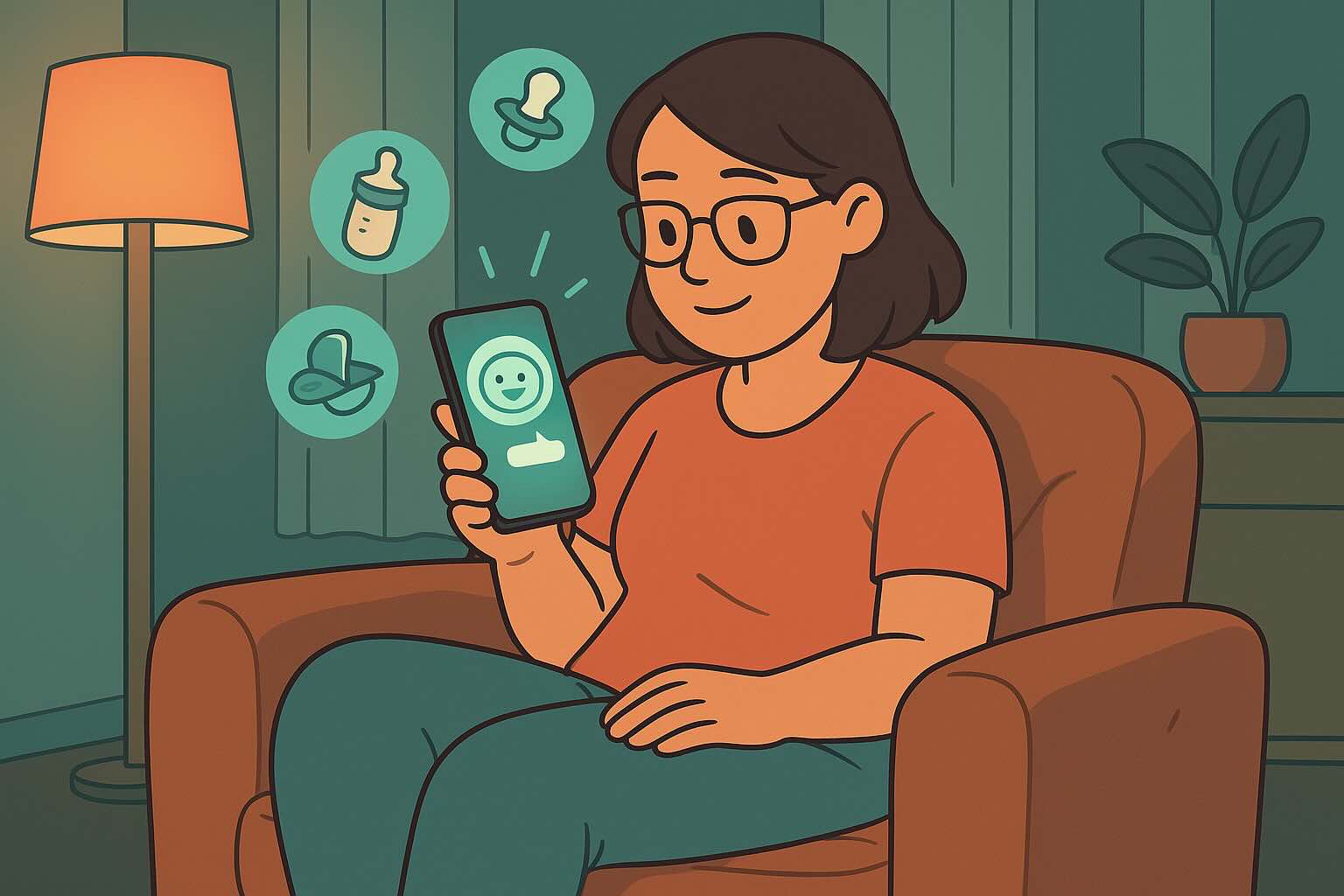
Self-Care for Parents
Daily affirmations, guided meditations, and journaling tools to help you stay centered and emotionally balanced.

Routine Transition Planner
4-week method for implementing routine changes successfully with gradual strategies and resistance management techniques.
Frequently Asked Questions
Need personalized support?
RootWise's AI coach can provide tailored strategies for your specific situation, available 24/7 when you need it most.
Learn More About AI Coaching →